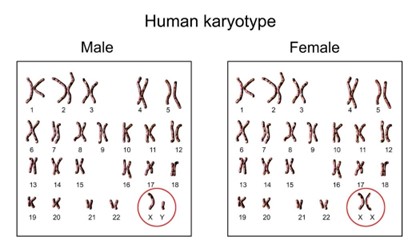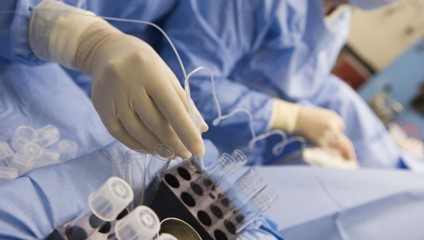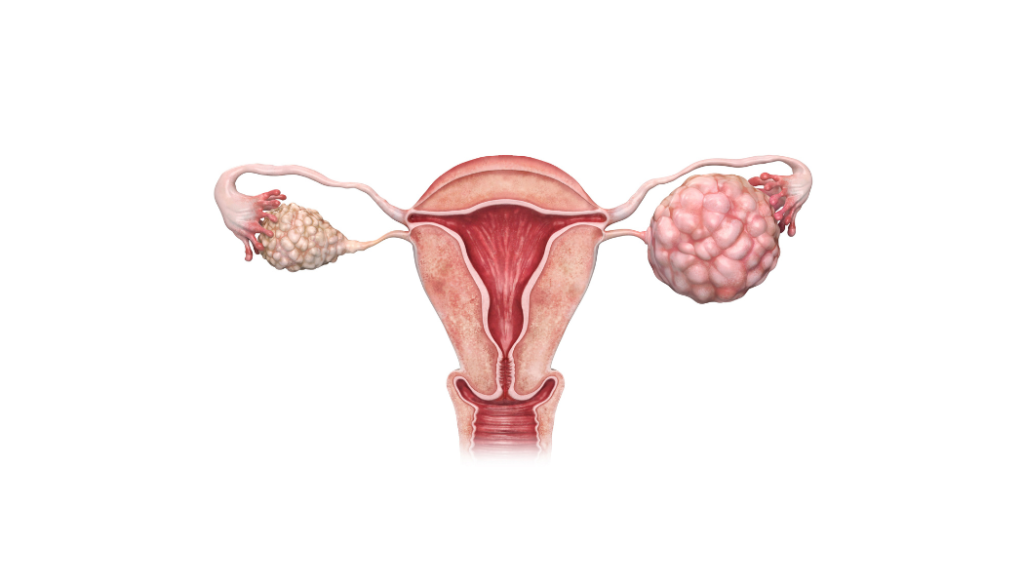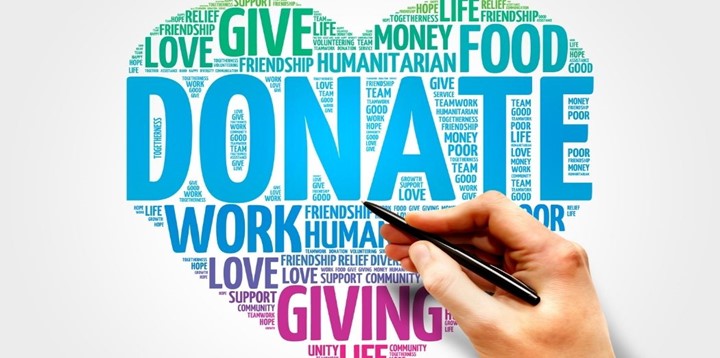From the time of starting the egg donation process to the aspiration of the eggs will typically take 3-4 months. Of course, with complications, this time frame can be extended. It is highly doubtful that ANY first-time egg donor will complete the process in less than three months. Patience can be a virtue.
This time frame will remain the same regardless of whether the donor is a sister or close friend or where the intended parent waives many of the steps discussed below.
Complete Application
Understandably, if the donor is a family member or close friend, all parties will agree to forgo answering a lengthy questionnaire. This could be the right choice for a donor who is a blood relative; however, by completing an application, the donor shows commitment to the process while giving herself time to carefully examine her decision to donate. In addition, reading the family genetic or medical report may remind everyone of the increased risk of inheriting a medical condition. If nothing else, the application will contribute towards everyone carefully considering if this donor – lovely as she is – is the right person to work with.
If the donor is not a blood relative, it is highly recommended that she completes a questionnaire in all circumstances, as this medical information may become valuable to the parents or the child. Remember that lives can move on, and close acquaintances can sometimes become distant but fond memories. So, there are many advantages to having a written questionnaire in advance and having the medical information in a safe location. There is no recognizable downside to asking for an egg donor application to be completed.
Review Application
The application review is a necessary step that should not be overlooked. Intended parents should meticulously read and re-read the application multiple times, ensuring that all questions are thoroughly and satisfactorily answered. Any uncertainties or queries that arise should be addressed promptly. To avoid misunderstandings, we strongly advise documenting and sharing all additional answers with all parties involved. Assumptions should be avoided, as they can lead to significant implications. Everyone can ensure accurate understanding by sharing the documentation and seeking clarification on any follow-up questions. In the review process, involving the fertility doctor and other professionals, such as mental health professionals, case managers, or attorneys, is wise. Since this might be your first exposure to egg donation, having a trained eye to scrutinize all documentation can help identify any irregularities or past issues that require further investigation.
The Medical Workup
Usually, on day 3 of your donor’s menstrual cycle, your fertility doctor will perform a physical examination and order various hormone tests. The physical examination will include an internal ultrasound, and some donors have reported it to be somewhat uncomfortable and likened it to a pap smear/cervical screening. In addition, the doctor will take vaginal cultures. The typical tests are follicle-stimulating hormone (FSH), luteinizing hormone (LH), and Estrogen. A newer test, anti-Müllerian hormone (AMH), may be ordered as those levels help predict ovarian reserve (basically, how many eggs can be expected to be retrieved). For more information, visit our Articles & Videos and review the Article: Understanding Reproductive Hormones.
- Ultrasound for antra follicle count
This ultrasound will give your fertility doctor a good indicator of the donors’ ovarian reserve or how many eggs may likely be aspirated at the end of the cycle. The antral follicles are tiny, fluid-filled sacs that contain immature eggs that the body prepares for maturation in that cycle. These sacs are counted on Days 2, 3, and 5 by using ultrasound. Most young women should produce 5-10 antra follicles per ovary for 10-20 follicles. If less than ten antral follicles, in total, are seen, frequently the cycle will be canceled and restarted the following month.
- The second round of bloodwork
If the first round of bloodwork and the antral follicle count are acceptable, the fertility doctor will order a 2nd round of bloodwork. The results of these tests will typically take around 2-4 weeks to be received. The tests include: –
- Donors blood type: For more information, visit our Articles & Videos and review the Understanding Blood Types article.
- Social Disease Testing: Every doctor’s office has its requirements for social disease testing, and in most cases, these tests are dictated by law or a medical governing body. In the USA, the Food and Drug Administration (FDA) requires the following testing be completed on all egg donors:
-
- HIV, types 1 and 2
- Hepatitis B Virus (HBV)
- Hepatitis C Virus (HCV)
- Treponema pallidum (syphilis)
- Chlamydia trachomatis
- Neisseria gonorrhea
- West Nile virus
Most fertility clinics will require these tests as a minimum and will have a list of additional testing needed. Be aware that if the donor is sexually active frequently, her partner may also need to undergo social disease testing.
- Genetic Testing & Karyotype Testing
Depending on ethnicity, most egg donors are screened for at least 23 genetic disorders, such as cystic fibrosis, and inherited hemoglobin-related diseases, such as sickle cell anemia or thalassemia. Some egg donor agencies and fertility clinics will screen donors for nearly 300 genetic disorders! Genetics is thriving, and additional tests are continually being discovered. It is, however, important to note that being a carrier is not the same as having the genetic condition in question. A donor may be a carrier of a genetic condition but does not have that genetic condition herself. We are all carriers of several genetic diseases, only some of which can be detected with today’s technology. Being a carrier is part of being human – it is normal. In addition, a negative test result reduces but does not eliminate the possibility that the child will not be a carrier of or have an inheritable condition.

If the intended parent elects to have their donor undergo genetic and karyotype testing, it is also recommended that the intended father undergo the same testing to compare their results. If a sperm donor is involved, it is recommended that the egg donor duplicate the testing already undertaken by the sperm donor. We also encourage you to schedule a session with a certified genetic counselor to review these results.
- Genetic screening – screens for a family history of congenital disabilities or hereditary diseases by taking a comprehensive family history.
- Karyotype testing – testing for blood type and screening for cystic fibrosis and inherited disorders related to hemoglobin, such as sickle cell anemia or thalassemia, depending on ethnicity.
- Urine drug screen
This test is done at the beginning of the screening process and sometimes repeated just before the aspiration.
Psychological Screening
The donor will be asked to speak with a psychologist to ensure she fully understands the benefits and risks of egg donation and has proper motivations for becoming a donor. Before a mental health professional can screen a donor, the counselor must review the donor’s application to ensure she qualifies for the initial donor requirements. If the counselor has any concerns about the written application, the counselor will make detailed notes. She will share her concerns with the donor, intended parents, the agency, and the fertility doctor.
The Counselor’s intake interview is educational and interactive. This screening is a collaboration. The donor and counselor evaluate the proposed egg donation in terms of what is expected and the possible risks and determine if the donation is the right path and if the timing is right for the donor. A counselor typically starts by explaining the role of a counselor: to guide, educate, teach good communication skills, provide resources, put in safeguards, manage expectations, and empower the donor with the knowledge that she should not be afraid or reluctant to ask questions throughout the process.
The counselor will strive to understand the donor’s motivations in donating her eggs, her personality, her decision-making process, social and family relationships, her support system, how she has resolved problems historically, her ability to take care of herself and her family, and her intellectual competency. The counselor will assess the egg donor to determine how she will respond to and resolve issues that may arise during the egg donation process.
A donor’s mental and emotional health is an especially important consideration, and mental health testing and evaluation should take place to exclude the presence of psychiatric disease that a child could inherit. In addition, the mental health professional should evaluate if this donor can cope with creating a child for someone else. In the USA, most donors will also complete a standardized psychological test. The most common is the Minnesota Multiphasic Personality Inventory-2 (MMPI). The counselor uses the testing tool to identify personality style, psychopathology, potential behavior problems such as drug abuse, addiction, hostility towards authority figures, stresses in her life, and her ability to be truthful and forthcoming.
Here are a few examples of some psychological questions that a mental health professional may discuss with the donor:
- How do you feel about sharing your genetic material with a child you will not know or have a relationship with?
- Have you discussed this egg donation with your partner, family, or friends?
- Let us talk about your current relationship status. If single, do you intend to share the information that you donated your eggs with any future partner?
- How much information do you want the intended parent(s) to know about you?
- What kind of contact would you be interested in pursuing with the intended parent before, during, and after this donation?
- How do you feel about a child contacting you in the future?
- Do you want to know if the intended parents achieve a pregnancy?
- If you were to experience infertility problems in the future, how would you feel about your decision to donate eggs?
- Do you think you will donate your eggs to another intended parent?
- Do you have someone close that you can talk to about this donation and may be willing to accompany you to medical appointments, help you with the injections, and be present at the aspiration (removal) of your eggs?
- How will you handle being rejected from participating in egg donation or not being permitted to help your sister or best friend?
Legal Issues
The intended parent should have an attorney draft an egg donor contract to avoid potential legal issues. If the word “contract” is too official, then at least there should be an agreement between everyone. The agreement should state that the egg donor waives any parental rights and that all children born from her donated eggs will be the intended parent’s child. If the donor and intended parent have an existing relationship, the egg donor contract should spell out the terms of any future relationship between the donor and the child. It should also include some provision for who will inform the child of the egg donation and when this will happen. There should also be a clause that states that all frozen embryos belong to the intended parents. The issue of whether the intended parents can give these embryos to a third party should also be documented.
Cycle Begins
Usually, a cycle starts with the egg donor being given birth control followed by 2-3 weeks of hormone treatment (injections, pills, patches, creams). During the treatment phase of the cycle, the egg donor should be prepared to make 4-6 visits to the fertility clinic for monitoring, blood work, and vaginal sonograms to monitor her egg development.

Egg Retrieval
Egg retrieval, also called transvaginal aspiration, almost always occurs in the morning and lasts 15-30 minutes. The donor will be sedated for this procedure with “Twilight Sedation,” not general anesthesia. This means that the donor cannot drive herself home.
The aspiration is done vaginally, without incision or the need for stitches. The fertility doctor will use an ultrasound probe to locate the ovarian follicles. A very thin hollow catheter with suction capabilities is passed through the vagina wall and pushed against the ovary’s surface. Fluid from each follicle is drained, and a precious egg is in the fluid. This process continues until as many follicles, as can be seen are drained, then repeated on the second ovary. The tubes containing the follicular fluid are prelabelled with the donors’ names and IDs and that of the intended parent. These tubes are immediately taken to the fertility lab, where an embryologist will isolate the eggs and place them into a solution that will continue to grow for a few hours and then be fertilized or frozen.
The donor will rest in the fertility clinic recovery room for about an hour after the procedure, after which she will be ready to return home. It is highly recommended that the donor takes the rest of the day to relax at home and binge-watch her favorite television shows or movies. The donor is cleared to return to work or normal activities the following day. Her menstrual cycle should resume about two weeks after the retrieval.
Warning: The donor is still fertile, and it is not uncommon to find that not all eggs were retrieved, so she will be able to conceive that month, so be sure to remind her to use protection during intercourse.
Explaining & Understanding the Risks
Egg donation has been performed hundreds of thousands of times around the world. The chance of any problems arising during the process is believed to be low. However, as it is still a relatively new specialty field, it is important to note that there have yet to be studies on the long-term effects of egg donation. Therefore “no known risks” due to a lack of data is not the same as no risk, and this distinction should be made clear to egg donors. However, there are some known indirect issues arising from egg donation, and these need to be clearly and thoroughly explained to the donor:
- Some donors experience discomfort, redness, or bruising at the injection sites.
- Temporary allergic reactions to the medication can occur, such as reddening or itching at the injection site. In addition, breast tenderness and increased vaginal discharge can occur.
- Side effects of the fertility medication have been reported as moderate weight gain, mood changes, stomach pressure, headaches, or allergic reactions.
- Complications from the anesthesia used during the aspiration of her eggs. Anesthesia has been known to cause strokes, aspiration, or death.
- Infection caused by the aspiration of the eggs is rare but can occur. Bleeding and injuries to the bowels or blood vessels are also risks.
- Hyperstimulation or excessive ovarian response to fertility drugs could lead to enlarged ovaries. OHSS (Ovarian hyperstimulation syndrome) is when fluid retention and swelling of the ovaries occurs, and there is a 5% chance of occurrence in each cycle. (Elevated estrogen levels induce water to be drawn out of the bloodstream into the abdomen.) In most cases, OHSS is mild and disappears after the donor’s next menstrual cycle. OHSS symptoms are bloating, abdominal swelling, nausea and vomiting, low urine output, and cramping. Most donors will produce 12-25 eggs, but overreacting to medication can result in over 50. Ovaries are usually the size of walnuts, but OHSS can result in the ovaries growing to the size of grapefruits. Severe OHSS is a serious medical complication that can lead to blood clots, kidney failure, lung fluid build-up, and shock. Severe OHSS can occur in 1-2% of cases and will lead to hospitalization, where a doctor can try to drain the ovaries of the excess fluid, thereby relieving the pressure. However, an enlarged hyperstimulated ovary can rupture, requiring one or both ovaries to be removed. If symptoms of OHSS are seen during the cycle, the fertility doctor will most likely stop all medications and cancel the cycle.

- Despite all the prescreening and qualifying of the donor, there is always the risk that no, or few eggs will be aspirated. In addition, the eggs may not fertilize or develop into healthy embryos.
- During the cycle or after the aspiration, some donors report mild to moderate pelvic and abdominal pain. The pain generally disappears within a day or two of the aspiration.
- An association between fertility drugs and ovarian cancer has been suggested, but scientific evidence is lacking.
- Many experts deem egg donation safe based on the current but limited studies in the field. However, the effects of egg donation on future fertility are unknown, and more long-term studies of egg donation are needed. Scientific data on the long-term effects of in vitro fertilization cycles where a woman aspirates her eggs is available. Her eggs are fertilized outside her body, and the resulting embryo is transferred back into her uterus. In vitro fertilization has existed since the 70s, and thousands of cycles have transpired worldwide. Many scientific papers are reporting on follow-up studies of women who undergo in vitro fertilization and have reported on the long-term safety of the procedures for both mother and child.
- Around puberty, a young woman has 300,000 to 400,000 eggs. About 10-20 eggs grow and mature inside the ovaries during each menstrual cycle. Eventually, one dominant egg becomes fully developed, and the remaining eggs stop growing and are reabsorbed by the body. In an egg donor cycle, the fertility medication makes all the 10-20 eggs the body naturally prepares each cycle begin to grow and mature. The medication prevents the body from selecting only one dominant egg, as it would naturally do. Fertility medication does not cause the body to produce more eggs than it would naturally produce during each cycle, nor does it significantly deplete a donor’s natural reserve of eggs. The same number of eggs would have been lost from the body anyway during her next menstrual cycle.
- A donor is highly fertile for the two weeks before the aspiration until they have had a full menstrual cycle about 10-14 days after the aspiration. Abstinence is recommended for about five weeks.
- Egg donors need to be made aware that there is no guarantee that their participation in egg donation will remain anonymous. They should be mindful that current regulations protecting their privacy may change or that the children resulting from the donation may contact them one day.
- Intended parents need to be aware that some countries have laws enforcing confidentiality, whereas others do not permit anonymous donations. The intended parents should also be informed that current laws may change, that the donor can contact them and their child in the future, and that their children may decide to contact the donor.
Ensuring the well-being of egg donors is of utmost importance, and explaining the potential risks involved thoroughly is important. Donors should be educated about the signs of these risky conditions and know when to contact their clinic promptly. The IVF clinic should provide the donor with a 24-hour emergency number she can call to address any urgent concerns she may have during or after the donation process.
In addition to physical risks, it is equally important to prioritize the emotional well-being of the donor. Access to a mental health professional should be made available to the donor, offering support in case she experiences complications or has concerns post-donation.
Author: Karen Synesiou, Infertility Portal, Inc.


